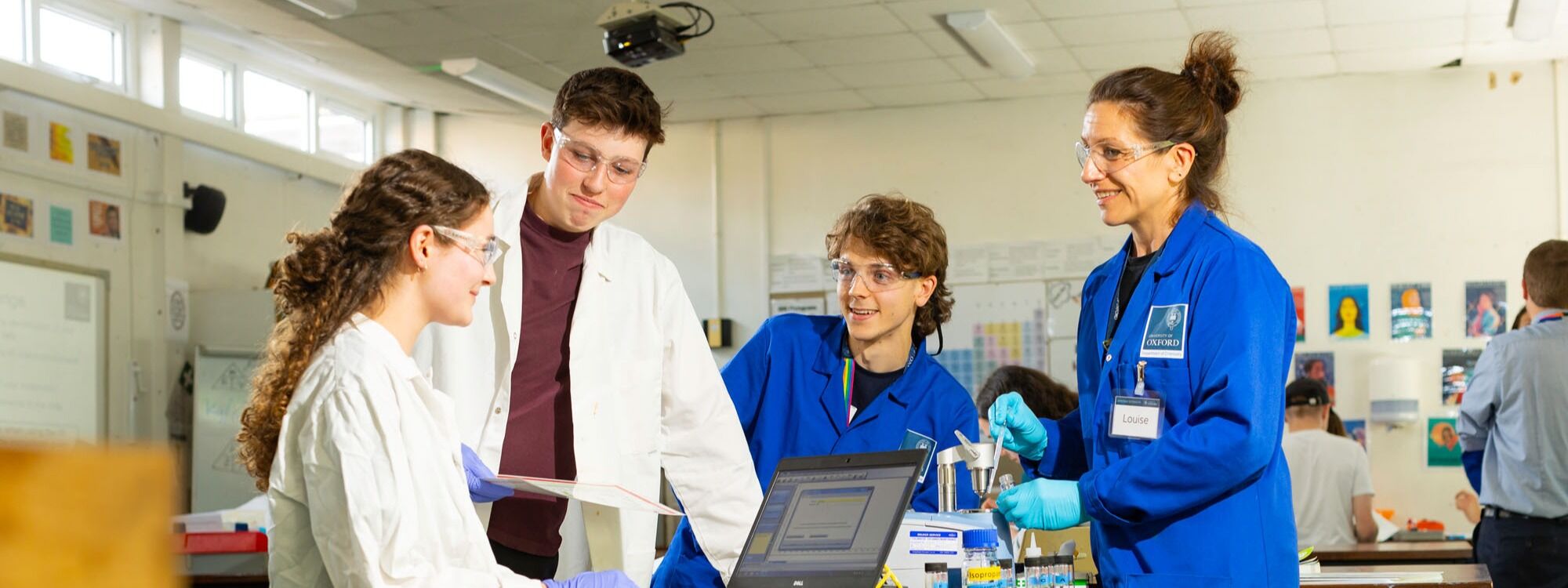
Science is using evidence to make sense of the world. It helps us understand our relationships with the world around us. Making new discoveries increases our sense of awe and wonder at the complexity of the world we inhabit. At Wood Green, our vision is to provide a hands-on science curriculum, which empowers pupils to explore and discover the world around them. We aim to do this through practical and exciting experiences, which encourage curiosity and foster learning. We aim to provide a stimulating and open-minded curriculum that nurtures children’s natural curiosity, independence and their on-going knowledge and understanding of the world around them. Through hands on, enquiry-based activities, children will confidently experience the joy of exploration, discoveries, and improvements.
The KS3 WGS Baccalaureate activities - Science subject award
Year 7
Students study the following topics:
| Biology | Chemisty | Physics |
|---|---|---|
| Cells | Particle Model | Energy |
| Skeletal system | Atoms, elements & compounds | Motion |
| Reproduction | Pure and impure substances | Forces |
| Ecosystems | Chemical reactions | Pressure |
| Sound |
Year 8
Students study the following topics:
| Biology | Chemisty | Physics |
|---|---|---|
| Cells & Immunity | The Periodic Table | Electricity |
| Movement | Acids and alkalis | Magnetism |
| Reproduction | Reactions | Light |
| Nutrition & Environment | Energy Changes | Sound |
Science GCSE revision resources
GCSE Chemistry specificationGCSE Physics specification
Year 9
Students study the following topics:
| Biology | Chemisty | Physics |
|---|---|---|
| Cells Structure | Amounts of sunstance | Energy - a |
| Ecosystems | Ionic Bonding | Electricity - a |
| Cell Transport | Covalent Bonding | Particle model - a |
| Biodiversity | Atomic structure - a |
Year 10
Students study the following topics:
| Biology | Chemisty | Physics |
|---|---|---|
| Plants and photosynthesis | Chemical calculations | Particle Model of Matter |
| Digestion and respiration | Chemical changes | Electricity |
| Breathing and circulation | Energy changes | Forces |
| Health & disease | Rates & Equilibria | Motion |
| Organic chemistry |
Year 11
Students study the following topics:
| Biology | Chemisty | Physics |
|---|---|---|
| Homeostasis | Chemical analysis | Waves |
| Inheritance | The atmosphere | Space |
| Variation & evolution | Sustainable development | Electromagnitisum |
The curriculum intent of the for this key stage is to inspire students to develop an interest in and enthusiasm for their chosen subject. The course will prepare students to progress into further education. We encourage learners to:
• Develop essential knowledge and understanding of different areas of the subject and how they relate to each other.
• Develop and demonstrate a deep appreciation of the skills, knowledge and understanding of scientific methods
• Develop competence and confidence in a variety of practical, mathematical, and problem-solving skills
Biology
Exam boards and Topics
| AS Biology - AQA | A2 Biology - OCR |
|---|---|
| Cells | Excretion |
| Biological Molecules | Neuronal communication |
| The Immune system | Hormonal communication |
| DNA & Cell division | Plant & animal responses |
| Exchange Surfaces | Photosynthesis |
| Mass Transport | Respiration |
| Genetic Diversity | Cellular control |
| Biodiversity | Patterns of inheritance |
| Manipulating genomes | |
| Cloning & Biotechnology |
Chemistry
Exam boards and Topics
| AS Chemistry - AQA | A2 Chemistry - Edexcel |
|---|---|
| Atomic Structure | Equilibrium II |
| Amounts of a substance | Acid-Base equilibria II |
| Bonding | Energetics II |
| Energetics | Redox II |
| Chemical equilibria | Transition metals |
| Equilibrium constant Kc | Kinetics II |
| Oxidation, reduction & redox equations | Organic Chemistry II |
| Periodcity & Group 2 | Organic Chemistry III |
| Halogens | Modern Analytical techniques II |
| Introduction to organic chemistry | |
| Alkanes | |
| Halogenoalkanes | |
| Alkenes | |
| Alcohols | |
| Organic analysis |
Physics
| AS Physics - AQA | A2 Physics - AQA |
|---|---|
| Particles and Radiation | Periodic Motion |
| Waves & Optics | Thermal Physics |
| Mechanics & Materials | Gravitational Fields |
| Electricity & Circuits | Electrical Fields & Capacitance |
| Magnetic Fields & Electromagnetism | |
| Nuclear Physics & Radiation | |
| Turning Points in Physics |
Science A level revision resources
Updated March 2025